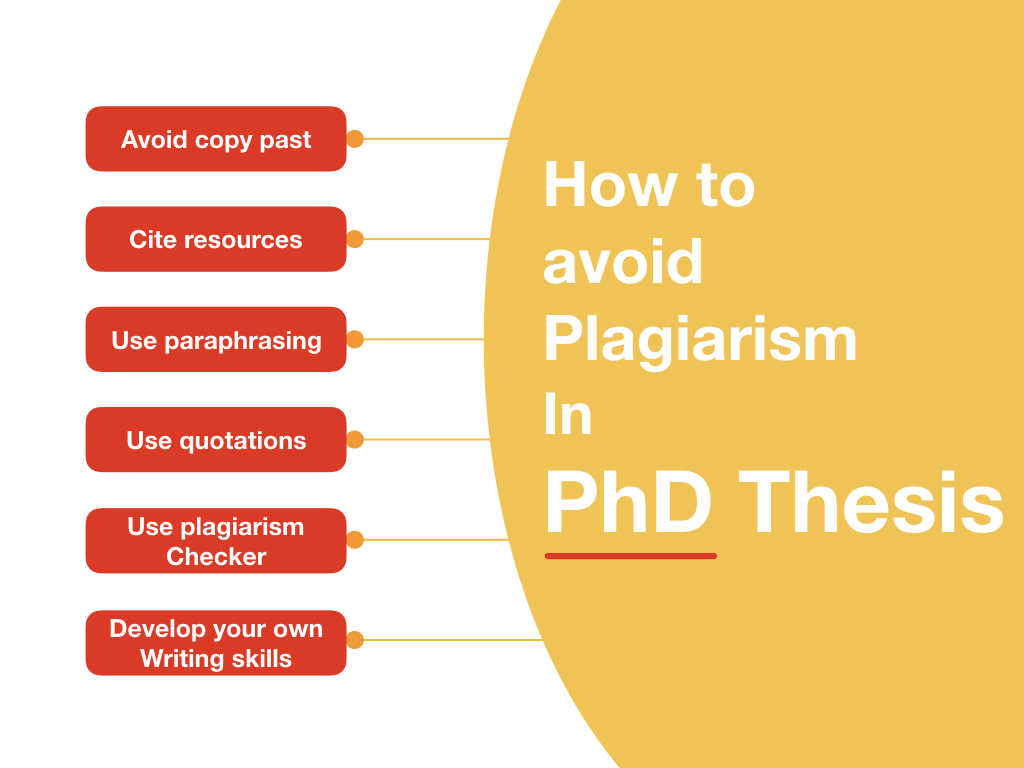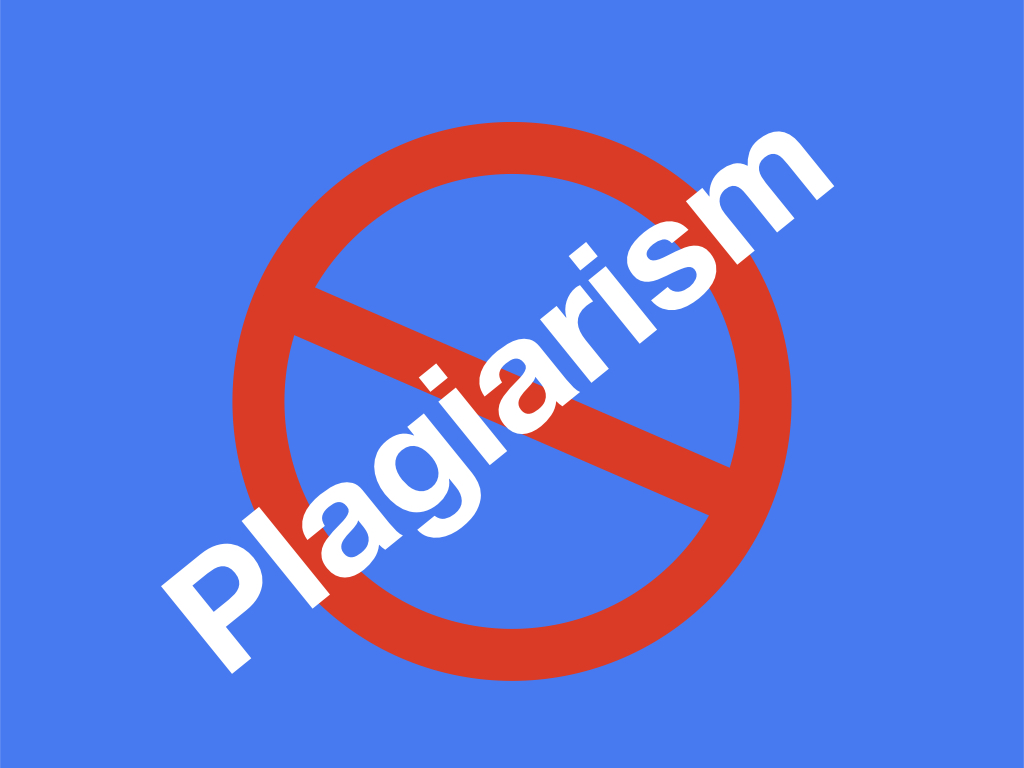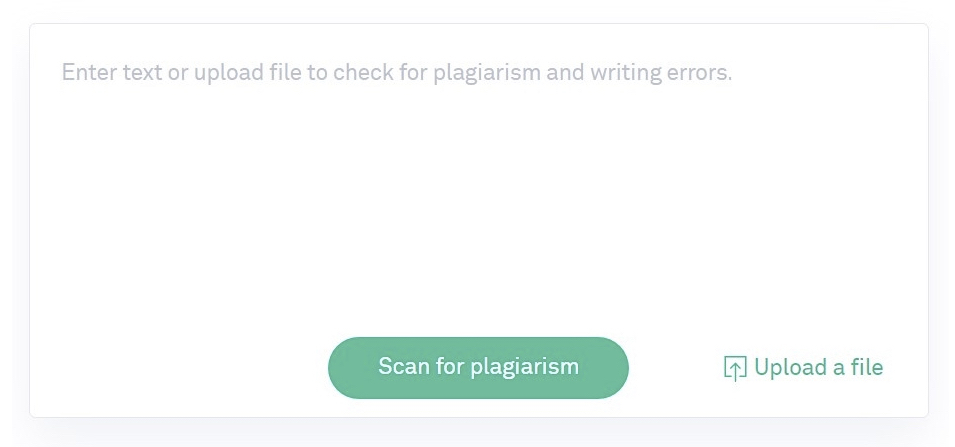The unethical practice to represent or publish someone else’s work as your own is considered in the plagiarised content or known as plagiarism.
Or we can say,
Activities of stealing third party intellectual work or its use without their prior permission is known as plagiarism.
A PhD thesis or dissertation is one of the most important elements of your entire PhD which is a written draft of your research and related work. You have to quote other researchers’ work to justify yours! And that is obvious that it might be matched.
Unfortunately, the copied or matched content with other research is considered in the plagiarised piece of content. You can’t submit it, eventually because universities are strict towards uncited and plagiarised content.
The plagiarism in the field of academics is considered as unethical activities or improper practices. Aiming towards quality research and knowledge, universities across the world apply various acts to avoid and stop plagiarism.
In recent times, there are so many softwares available that detect and reduce the level of plagiarism of your thesis. But in my opinion it is better to avoid it, instead of correcting it.
So how to avoid plagiarism? What is it and what is the software we can use to avoid it? All these topics we are going to cover in this article.
Talk of the topics: What is plagiarism? definition and etymology, types of plagiarism, how to avoid plagiarism and software to check it.
What is plagiarism?
Simply put, when you copy some piece of content from others like the written draft, sentences, original findings, articles, figures, graphs, images, videos, titles or even the ideas are considered under the plagiarism material.
In terms of PhD thesis, article writing or dissertation, when you copy some sentences- partially or fully or even use any scientist’s work without giving them credit, it is known as plagiarism.
When we are writing a thesis for a PhD or dissertation, it is common practice that we have to compare our work with others to support our findings, definitely and to give weightage to the work of the original researcher.
But most of the students, copies things, sentences, paragraphs, protocols, methods and even images and represents it that those are their own!
How you feel, when someone stole your hardwork and showed it as your own! You feel bad, obviously.
Plagiarism is an unethical practice commonly noticed in various fields, especially, in journalism and academics. Though it is a question of privilege in case of academic research.
That is why universities have tightened their hands on PhD students to stop plagiarism.
Definition of plagiarism:
“Representing or stealing other’s work like writeup, article, thesis or picture and representing it as your own is referred to as plagiarism.”
Or
“Using third party literature without their consent, prior permission or without giving them credit is known as plagiarism.”
The word plagiarism was derived from the Latin word ‘plagiarius’ means ‘kidnapped’. The word plagiarism as the “stealing of literature” was accepted in English during 1620. Afterwards, it was used to define literature theft.
What does plagiarism mean?
A thumb rule to express your PhD work or thesis is to use other literature and to make a comparative evaluation. Unfortunately, students actually don’t know how to write a PhD thesis free of plagiarism.
Let me tell you that plagiarism is against the law. The original researcher can file a lawsuit case against you as well. So it is safe to stay away from it.
In a simple language we can say plagiarism means you have stolen some intellectual work from others.
Plagiarism means,
- Stealing intellectual properties of other
- Using other’s work without their prior permission
- Unethical use of copyrighted material
- Using other’s work without giving them a fair credit
- Stealing or unethical use of someone else’s idea
- Unethical reconstruction or refurbishing of third party ideas, products or work.
- Using, modifying, copying or stealing sentences, title or entire paragraph of others’.
- Representing other’s work as your own.
- Unethical use of images or using pictures or images without prior permission.
- Use of videos without prior permission.
- Scanning or converting text or images unethically.
- Recreating some portion of original researchers’ work.
All these activities are considered in plagiarism and trust me, it is a serious offense. You will have to pay a high price for it, if you do so.
So what does it mean?
It means “stay away from plagiarism.”
Read more: How long does it take to get a PhD?
Plagiarism and a PhD thesis:
The PhD thesis or the dissertation is a write up of your PhD work, divided into introduction, review of literature, material and methods, results and discussion and conclusion.
It is a huge write up and you have to give so much information in it. So it is obvious that you have to use other sources to make your thesis trustworth.
But as we said, if using someone else’s work is an act of plagiarism then how to use it?
Knowingly or unknowingly students copy things, and at the end of the thesis, it becomes huge and they don’t know how to solve it.
So it is a wise decision to stay away copying or reconstructing things from the first day of your thesis writing.
Here in this section I have mentioned several tips you can use to avoid plagiarism in your PhD dissertation. But before that let us understand types of plagiarism.
Tips: Cite sentences and material correctly to avoid plagiarism.
Types of plagiarism:
Accidental plagiarism:
When a person accidentally steals others’ work or unknowing use their material it is considered as accidental plagiarism.
Activities like, avoiding citation, forgetting citing sentences, accidentally matching sentences or title or use of similar words are considered in it.
This type of plagiarism is so common in PhD students because they actually don’t know how to write a thesis in their initial time of PhD.
Self plagiarism:
Using our own literature is also an act of plagiarism? Yet it is.
To use your own article, or work you also have to take permission from other authors or researchers or your guide to use it. Also you have to cite it correctly with your name.
Using your own literature without the citation is also considered self plagiarism.
Direct plagiarism:
When you copy the whole portion of someone else’s work even without citing them it is considered in direct plagiarism. Usually direct plagiarism is so common in academics.
How to avoid plagiarism in PhD thesis?
People often ask me how to remove, avoid or correct plagiarism of their thesis? Well it is not that hard, if you take care of some point while writing your PhD dissertation.

No copy past:
The thumb rule to encounter plagiarism is to stop copying things! Usually students are copying and pasting things from the internet and other related sources. It is not ethically accepted, at least in academics.
One thing is good in it, you are searching something but you are taking the whole piece of information as it is, for your own purpose that is wrong.
The third party source should be written in your own language in your thesis, even though you are using it for reference. Write what you gain or understand from that source.
Cite the source correctly:
Why to use someone else’s finding without giving them credit!
When you are using external information or third party literature, cite it with the name, date, year and other information. There are several ways to do so.
For example,
Tushar Chauhan et al., had reported two cases of Down syndrome from the prenatal samples with translocations.
Or
Translocations in down syndrome were reported previously (T chauhan et al., 2018).
Both sentences are the same, but the representation is different with different styles of citation. And it is also not copied.
Use quotations:
You can also use quotations while including some other work. It is one of the simplest ways to cope up plagiarism issues while writing the thesis.
A proper quote or quotations around the word or sentence indicate that it is not of your own. Note that the complete reference of the quote should be included in the end to navigate.
You can use direct quotes and modify the original sentence without changing its meaning to explain your point.
For example,
T Chauhan et al., reported that, “two cases of Down syndrome with translocation.” however in our case though we have reported the Down syndrome but not the translocation.
Here we have quoted the statement of T chauhan et al, and also compared with to prove our point.
Use paraphrasing
Paraphrasing means to restructure the original work or idea or piece of information. Therefore ultimately you are changing the structure of the sentences of the original researcher. It is also valid to some extent if you restructure it correctly and cite it.
Remember, the original sense and meaning of the sentence shouldn’t be altered.
Develop your own writing sense:
To cope up with all these problems, try to develop your own sense of writing and learn correct English writing and grammar.
Grammerly will help you in this. You can read our article on Grammarly to learn more:
But remember, while writing things, don’t forget to cite it and indicate it in the reference section, that is the correct method to avoid plagiarism. Also I recommend avoiding rephrasing the sentence.
It is also against the policy of plagiarism, even though it is not considered in the plagiarism.
Use plagiarism checker:
One of the finest ways to solve your problem while writing a PhD thesis is to use a plagiarism checker.
The plagiarism checker is an online software in which you can check our write up whether it is free of plagiarism or not.
Grammarly’s plagiarism checker software is one of the most trusted PhD thesis plagiarism checkers on the internet.
It checks out text against the possible material or text available on the internet to find whether your text is copied or not.
It also suggests to you what to do with the plagiarised sentences and how to restructure it. It also checks spellings and grammar during the check as well.
And guess what! It is free.
Check your document here:
Why is plagiarism so important?
Students are always worried about what they are writing, they know once it will be covered in the plagiarised material, it will be hard for them to come out.
In academics, especially while awarding some of the prestigious awards or degrees like doctorate or PhD, it is essential for universities to protect researchers’ work.
There are so many legal problems knocking on the desk of universities regarding copying the whole PhD project, stealing the idea of research, copying or stealing PhD titles or even stealing the whole PhD thesis content.
It happens, people are doing this. So it is very important to teach students in the initial phase not to steal work as well as to protect their own work.
For some common PhD topics, it is fine, for those who only want a degree. But for some million dollar ideas, it is the question for value. There are thousands of PhD students whose copyrights are stolen by big giant companies.
These are the reason, universities across the globe are very strict in maintaining the dignity of research and protecting the researcher’s intellectual properties.
Intellectual property right, copyright and trademark helps not only the PhD students but also others to protect their ideas, intellectual views and findings by stamping it as copyright material.
A recent trend of protectly the PhD title with the copyright stamp is most popular among the students.
The plagiarism matter is also a big problem in the new media but that is a whole different thing that we are not discussing here.
Moreover, universities have opted for an additional level of PhD degree difficulty by introducing plagiarism checking.
A candidate willing to submit their PhD thesis must have to check their thesis for plagiarism in university and university gives a certificate of original work for the next step of submission.
Without the certification of your thesis you can’t submit it to check.
“Shodhganga” , a huge database of PhD thesis of the university grant commission of India, checks and collects PhD theses in order to protect findings and provide quality in the research.
Related article: What is PhD?- History, Definition, Origin, Requirement, Fees, Duration and Process.
My suggestion to avoid plagiarism:
Getting rid of plagiarism is not that hard, you have to take care of several things. You are in the PhD- doctor of philosophy, people expect a high-end precision from you.
Frankly speaking, I never had faced a problem of plagiarism during my PhD, unlike other student’s experience. So i think my style of writing and keeping things up to date will definitely help you.
Read articles thoroughly and make rough notes in your diary or in a computer file. Read as much as you can and make files, like a small summary of the whole article with the title of the article, name of researchers, date and year of publishing and name of journal.
It is obvious that you have to make summaries of more than 200 articles. When you start writing your PhD research paper or thesis, use the summaries of your article instead of re-reading the whole article and wasting time.
Try to summarize the summary note even more elaborate and cite it immediately. Simultaneously make another file of bibliography and enlisted the references with your writing.
Now what happens?
You had summarised the article in your own language and then whilst writing the dissertation you are using some portion of it. Trust me your text or any portion of your thesis never matches with the original research article.
But!
Don’t forget to cite it! Citation and quotations make it trustworthy. This method will help you to cope up with plagiarism and also save time.
You can even use the mandely online software which is the citation management system. We will discuss mandalay in some other article.
As per my personal opinion, during your PhD, you should have to remember the content, methods, authors name of your main 10 to 20 research papers on which your entire PhD work relies.
Further read: A Complete Roadmap for Degree to PhD.
Conclusion:
Plagiarism either knowingly or unknowingly is the biggest problem in PhD. Students actually don’t want to do it, but they don’t know how to write a thesis. Notably, universities teach research methodology during the coursework period of one year.
Still, PhD guides should have to care about it and teach them how to write plagiarism free literature in their own language.
I think this will definitely help you and don’t forget to check out the grammarly plagiarism checker.
FAQs:
What is plagiarism?
Unethical use of intellectual works like articles, sentences, images or video, or use of third party work without their permission is known as plagiarism.
Is plagiarism illegal?
Yes. Stealing ideas of intellectual work is against the law in every country. The original researcher may file a case against you.
How much plagiarism is allowed in PhD thesis?
Even though we follow the health practice, some text can’t be avoided in the thesis, usually up to 20% plagiarism content is considered fair practice.
How to cite PhD literature?
You can use the name, date and year of the original researcher at the end of the portion you have used for your document. also, don’t forgot to add their full citation in the reference section. That is the correct method of citing literature.
How to check plagiarism?
There are so many free plagiarism checker softwares now available on internet, You can use it. go and paste you text and check it. Grammerly is one of the most accurate and trusted plagiarism checker software, i personally recommended.
How to avoid plagiarism?
By citing the literature, using paraphrasing, using quotations, and by developing your own writing style, you can avoid plagiarism.

Dr. Tushar Chauhan is a Scientist, Blogger and Scientific-writer. He has completed PhD in Genetics. Dr. Chauhan is a PhD coach and tutor.





